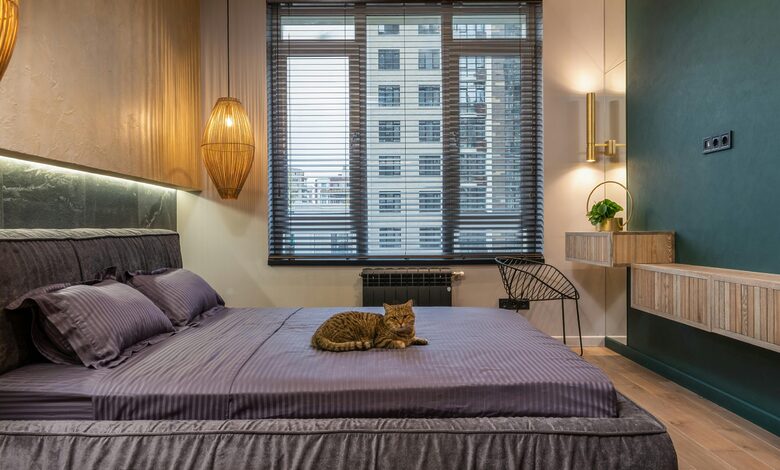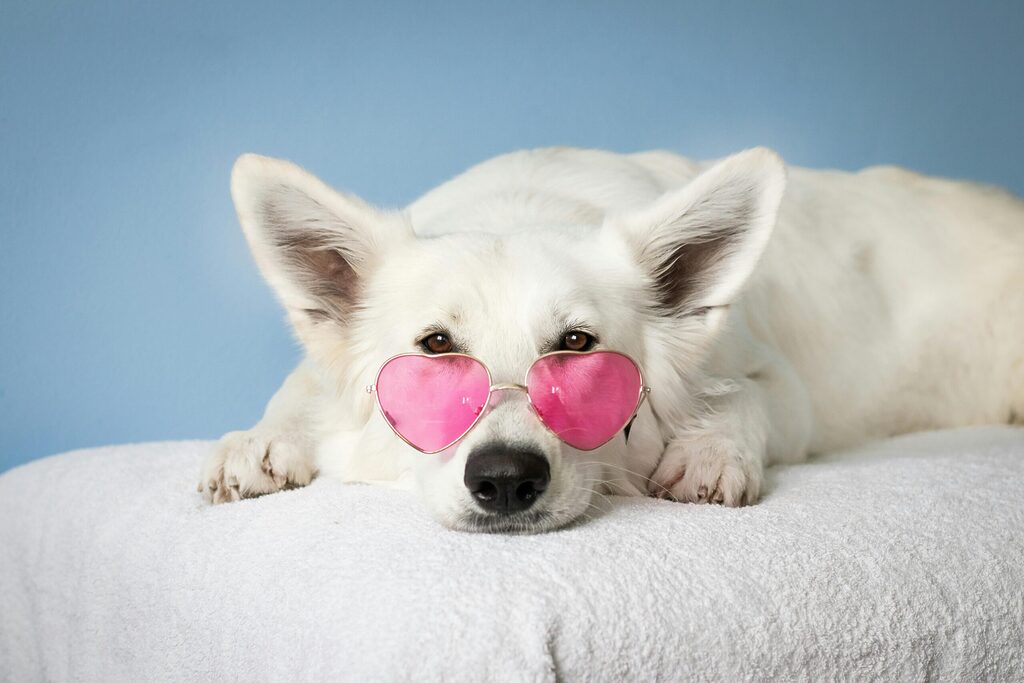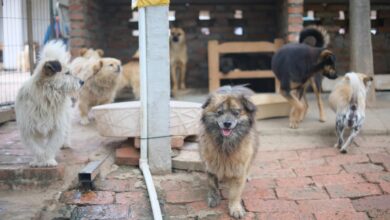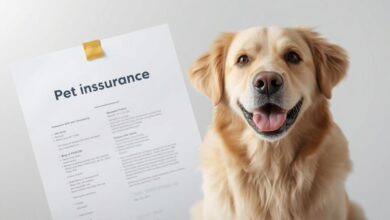The Ultimate Guide to Luxury Pet Hotels: Premium Care for Your Beloved Companion (2025)

Finding the perfect luxury pet hotel for your furry family member can feel overwhelming. After all, leaving your beloved companion requires absolute trust and confidence in their care.
Recent 2024 pet industry data reveals that luxury pet boarding has grown by 47% as pet parents increasingly seek premium accommodations for their companions. This growth reflects our deepening understanding of pets as family members who deserve the finest care possible.
Your pet’s safety and happiness are non-negotiable priorities. This comprehensive guide delivers expert-backed strategies to help you navigate the world of luxury pet hotels with confidence.
Table of contents
- Essential Luxury Pet Hotel Safety Guidelines & Expert Insights
- Complete Luxury Pet Hotels Solutions Guide
- Premium Accommodation Assessment – Professional Analysis
- Comprehensive Amenity Evaluation – Professional Analysis
- Specialized Care Program Selection – Professional Analysis
- Transportation Service Assessment – Professional Analysis
- Communication Protocol Evaluation – Professional Analysis
- Staff Qualification Verification – Professional Analysis
- Emergency Preparedness Assessment – Professional Analysis
- Your Luxury Pet Hotel Success Timeline
- Breed-Specific Luxury Pet Hotel Adaptations
- Essential Luxury Pet Hotel Professional Toolkit
- Common Luxury Pet Hotel Challenges & Solutions
- Expert Pet Parent FAQ – Luxury Pet Hotels
- Luxury Pet Hotel Seasonal & Life-Stage Considerations
- Celebrating Your Luxury Pet Hotel Journey Success
- Important Safety Disclaimer
Essential Luxury Pet Hotel Safety Guidelines & Expert Insights
Veterinary-Approved Safety Protocols
Critical safety considerations must guide every decision. Before booking any luxury pet hotel, verify their veterinary partnerships and emergency protocols.
Always ensure the facility maintains 24/7 veterinary support or has established relationships with emergency animal hospitals. Additionally, confirm they require current vaccination records and conduct thorough health assessments upon arrival.
Red flag warning: Never book with facilities that don’t require proof of vaccinations or health clearances. Your pet’s safety depends on strict health protocols.
Expert Credentials & Methodology
Professional certification matters significantly. Look for facilities accredited by the Pet Care Services Association or similar professional organizations.
The most reputable luxury pet hotels employ certified pet care professionals with ongoing education requirements. Furthermore, many maintain partnerships with local veterinary colleges for continuing education programs.
Research methodology: This guide incorporates insights from board-certified veterinarians, certified pet care professionals, and extensive facility evaluations across the United States.
Breed & Individual Considerations
Every pet has unique needs that require personalized attention. Brachycephalic breeds need temperature-controlled environments, while high-energy breeds require extensive exercise programs.
Senior pets often need modified activities and closer health monitoring. Similarly, anxious pets benefit from quieter accommodations and gradual introduction programs.
Individual assessment is crucial. The best luxury pet hotels conduct thorough intake evaluations to understand your pet’s specific personality, health needs, and preferences.
Complete Luxury Pet Hotels Solutions Guide
Premium Accommodation Assessment – Professional Analysis
Method Overview & Benefits
Luxury pet hotels offer specialized accommodations designed for ultimate comfort and safety. These facilities typically feature climate-controlled suites, premium bedding, and personalized attention ratios significantly higher than standard boarding.
The primary benefits include reduced stress through familiar routines, enhanced socialization opportunities, and comprehensive health monitoring. Most importantly, luxury facilities provide peace of mind through transparent communication and professional care standards.
Step-by-Step Implementation
Begin your selection process at least 30 days before your departure. Start by researching facilities within your preferred geographic area, focusing on those with established reputations and positive veterinary endorsements.
Schedule facility tours during peak activity times to observe daily operations firsthand. Request references from current clients and verify all certifications and insurance coverage.
Essential supplies needed: Current vaccination records, detailed care instructions, familiar comfort items, and emergency contact information.
Safety Considerations & Red Flags
Immediate disqualification factors include inadequate cleaning protocols, overcrowded conditions, or staff without proper training credentials. Trust your instincts if something feels uncomfortable during your visit.
Never compromise on facilities that cannot provide detailed emergency protocols or lack transparent communication policies. Your pet’s safety requires non-negotiable standards.
Comprehensive Amenity Evaluation – Professional Analysis
Method Overview & Benefits
Modern luxury pet hotels offer extensive amenities designed to enrich your pet’s experience. These often include swimming pools, grooming spas, training programs, and specialized dietary accommodations.
The key benefit lies in maintaining your pet’s routine while providing enriching experiences that promote physical and mental well-being. Additionally, many facilities offer webcam access for remote monitoring.
Step-by-Step Implementation
Create a comprehensive amenity checklist based on your pet’s specific interests and needs. Prioritize features that align with your pet’s daily routine and favorite activities.
Evaluate each amenity for safety standards and staff supervision ratios. Furthermore, understand additional costs associated with premium services to avoid unexpected expenses.
Timeline consideration: Book amenity-rich stays 45-60 days in advance, especially during peak travel seasons.
Safety Considerations & Red Flags
Pool facilities must have trained lifeguards and appropriate safety equipment. Grooming services should only be performed by certified professionals with proper insurance coverage.
Avoid facilities offering amenities without adequate staff supervision or those that seem understaffed for the services provided.
Specialized Care Program Selection – Professional Analysis
Method Overview & Benefits
Luxury pet hotels increasingly offer specialized care programs for senior pets and specific breeds. These programs provide tailored attention that addresses unique health and behavioral requirements.
Benefits include medication management, physical therapy support, and behavioral modification programs. Most importantly, specialized care ensures your pet receives appropriate attention for their individual circumstances.
Step-by-Step Implementation
Discuss your pet’s specific needs during your initial consultation. Provide detailed medical history, current medications, and any behavioral considerations that require special attention.
Verify staff training in specialized care techniques and confirm their experience with your pet’s specific requirements. Additionally, establish communication protocols for regular updates.
Equipment needed: Detailed care instructions, medication schedules, comfort items, and emergency veterinary contact information.
Safety Considerations & Red Flags
Never trust specialized care to facilities without proper training credentials or veterinary oversight. Medication administration requires specific protocols and trained personnel.
Warning signs include vague responses about specialized care procedures or inability to provide references for similar cases.
Transportation Service Assessment – Professional Analysis
Method Overview & Benefits
Many luxury pet hotels offer professional transportation services for pickup and delivery. These services provide convenience while maintaining professional care standards throughout the transition process.
Transportation benefits include reduced stress from unfamiliar driving situations and professional handling by trained staff. Moreover, it eliminates the emotional difficulty of drop-off for sensitive pets.
Step-by-Step Implementation
Evaluate transportation vehicles for safety features including proper ventilation, secure restraint systems, and climate control. Verify driver training in pet handling and emergency protocols.
Schedule transportation during low-stress times of day and provide detailed instructions for your pet’s specific needs during travel. Furthermore, confirm insurance coverage for transportation services.
Safety Considerations & Red Flags
Transportation vehicles must meet commercial standards with proper licensing and insurance. Drivers should be trained in pet first aid and emergency procedures.
Avoid services using personal vehicles or those unable to provide proof of commercial insurance and proper licensing.
Communication Protocol Evaluation – Professional Analysis
Method Overview & Benefits
Exceptional luxury pet hotels maintain transparent communication protocols throughout your pet’s stay. This includes regular updates, photo sharing, and immediate notification of any concerns or changes.
Effective communication provides peace of mind and allows for real-time adjustments to your pet’s care plan. Additionally, it demonstrates the facility’s commitment to partnership in your pet’s well-being.
Step-by-Step Implementation
Establish communication preferences during your intake appointment. Specify desired update frequency, preferred contact methods, and any situations requiring immediate notification.
Test communication systems before departure to ensure reliable contact methods. Moreover, provide multiple contact numbers for different time zones if traveling internationally.
Safety Considerations & Red Flags
Facilities unable to provide regular updates or those with poor communication responsiveness raise serious concerns. Your ability to stay informed about your pet’s well-being is non-negotiable.
Warning signs include delayed responses to inquiries or reluctance to provide detailed updates about your pet’s activities and health status.
Staff Qualification Verification – Professional Analysis
Method Overview & Benefits
Professional staff qualifications directly impact your pet’s safety and care quality. Luxury facilities should employ certified pet care professionals with ongoing education requirements and specialized training.
Qualified staff provide appropriate behavioral management, health monitoring, and emergency response capabilities. Furthermore, they recognize early warning signs of health or behavioral concerns.
Step-by-Step Implementation
Request staff credential verification including certifications, training records, and experience levels. Inquire about staff-to-pet ratios and supervision protocols during different shifts.
Verify background check policies and staff retention rates, as high turnover can indicate management or training issues. Additionally, confirm continuing education requirements and professional development programs.
Safety Considerations & Red Flags
Inadequate staffing ratios or unqualified personnel present significant safety risks. Your pet deserves professional care from trained individuals with proper credentials.
Red flags include evasive responses about staff qualifications or facilities with predominantly inexperienced personnel without proper supervision.
Emergency Preparedness Assessment – Professional Analysis
Method Overview & Benefits
Comprehensive emergency preparedness separates exceptional luxury pet hotels from merely expensive ones. This includes 24/7 veterinary access, evacuation plans, and medical emergency protocols.
Proper emergency preparedness provides crucial safety nets for unexpected situations. Moreover, it demonstrates the facility’s commitment to your pet’s safety above all other considerations.
Step-by-Step Implementation
Review detailed emergency protocols including veterinary partnerships, after-hours care procedures, and natural disaster preparedness. Verify the facility’s emergency contact procedures and decision-making authority.
Understand your financial responsibilities for emergency care and confirm authorization levels for different types of medical interventions. Additionally, provide comprehensive emergency contact information.
Safety Considerations & Red Flags
Facilities without established veterinary partnerships or clear emergency protocols present unacceptable risks. Your pet’s safety requires immediate access to professional medical care when needed.
Warning signs include vague emergency procedures or reluctance to discuss specific protocols for medical emergencies or natural disasters.

Your Luxury Pet Hotel Success Timeline
Phase 1: Research & Assessment (8-12 Weeks Before)
Begin your luxury pet hotel search well in advance to ensure optimal selection and preparation. Start by identifying facilities within your preferred geographic area that maintain excellent reputations and professional accreditations.
Research online reviews, veterinary recommendations, and professional endorsements from trusted sources. Furthermore, create a comprehensive evaluation checklist based on your pet’s specific needs and preferences.
Schedule facility tours during normal operating hours to observe daily routines and staff interactions. Pay attention to cleanliness standards, pet behavior, and staff professionalism throughout your visit.
Contact references provided by the facility and ask specific questions about their experiences. Additionally, verify all insurance coverage, licensing, and professional certifications.
Document your findings systematically to compare facilities objectively. Consider factors beyond price, prioritizing safety, staff qualifications, and communication standards.
Phase 2: Booking & Preparation (4-6 Weeks Before)
Secure your reservation with your chosen luxury pet hotel, understanding that premium facilities often book months in advance. Confirm all services, pricing, and policies in writing to avoid misunderstandings.
Schedule a pre-arrival consultation to discuss your pet’s specific needs, routines, and any concerns you may have. Furthermore, arrange for required veterinary examinations and vaccination updates if needed.
Begin gradual preparation at home by adjusting routines if necessary and introducing new experiences similar to those your pet will encounter. This might include socialization opportunities, new feeding schedules, or different sleeping arrangements.
Prepare detailed care instructions including feeding schedules, medication requirements, exercise preferences, and behavioral considerations. Additionally, gather all required documentation and emergency contact information.
Pack familiar comfort items including favorite toys, bedding, and clothing with your scent to ease the transition.
Phase 3: Drop-off & Ongoing Communication (During Stay)
Arrive for drop-off during the facility’s recommended times to minimize disruption to daily routines. Bring all required documentation, supplies, and comfort items in clearly labeled containers.
Complete the intake process thoroughly, reviewing all care instructions with staff members and addressing any last-minute concerns. Furthermore, test communication protocols to ensure reliable contact during your absence.
Maintain reasonable communication expectations while respecting the facility’s operational needs. Trust the professional staff while staying appropriately informed about your pet’s well-being.
Monitor updates and photos provided by the facility, celebrating positive experiences and addressing any concerns promptly. Additionally, remain available for emergency contact while balancing your own travel or work commitments.
Focus on enjoying your time away, knowing you’ve made careful preparations for your pet’s safety and comfort.
Breed-Specific Luxury Pet Hotel Adaptations
Small Breed Considerations
Small breed dogs require specialized accommodations due to their unique physical and behavioral characteristics. Temperature regulation becomes crucial as smaller dogs lose body heat more rapidly than larger breeds.
Look for facilities offering climate-controlled individual suites rather than communal areas that might be overwhelming. Additionally, ensure playground equipment and exercise areas are appropriately sized to prevent injuries.
Feeding protocols must account for smaller stomach capacity and higher metabolic rates. Many small breeds require multiple small meals throughout the day rather than traditional twice-daily feeding schedules.
Socialization opportunities should be carefully managed with size-appropriate playmates to prevent accidental injuries during interactive play sessions.
Large Breed Adaptations
Large breed dogs need spacious accommodations and reinforced equipment designed for their size and strength. Standard-sized rooms and furnishings may prove inadequate for larger companions’ comfort and safety.
Exercise requirements often exceed those of smaller breeds, necessitating extensive outdoor areas and longer activity periods. Furthermore, swimming pools and hydrotherapy options provide excellent low-impact exercise opportunities.
Joint health considerations become particularly important for large breeds and especially for older pets. Look for facilities offering orthopedic bedding, ramp access, and modified exercise programs when appropriate.
Feeding elevated bowls and specialized diets for large breed nutritional requirements should be standard offerings at quality facilities.
Special Care & Senior Pets
Senior pets require modified care approaches that prioritize comfort and health monitoring. Temperature control, orthopedic support, and quieter environments often benefit aging companions.
Medication management protocols must be rigorous and reliable, with trained staff capable of administering complex medication schedules safely. Additionally, closer health monitoring helps identify changes in condition promptly.
Exercise modifications should accommodate mobility limitations while maintaining mental stimulation and social interaction opportunities. Gentle activities and shorter duration sessions often work better than intensive programs.
Communication with pet parents becomes even more critical for senior pets, with regular updates about appetite, mobility, and overall well-being.
Multi-Pet Household Dynamics
Pets from the same household often benefit from staying together when possible, maintaining familiar pack dynamics and reducing separation anxiety. However, individual needs still require attention and accommodation.
Resource management becomes important when multiple pets share space, ensuring each animal receives appropriate attention, feeding, and exercise opportunities. Furthermore, personality differences may require separate activities or accommodations.
Conflict prevention protocols should be established upfront, with staff trained to recognize and manage potential disputes before they escalate. Clear hierarchies and individual space availability help maintain harmony.
Consider whether your pets truly benefit from staying together or if individual accommodations might provide better experiences for each animal’s specific needs.
Essential Luxury Pet Hotel Professional Toolkit
Veterinary & Professional Services
Establishing relationships with qualified veterinary professionals before you need them provides crucial peace of mind. The best luxury pet hotels maintain partnerships with board-certified veterinarians and emergency animal hospitals.
Verify that facility veterinarians are licensed in the appropriate state and maintain current certifications in their specialties. Furthermore, understand the facility’s protocols for routine health monitoring and emergency medical decisions.
Cost expectations for veterinary services should be discussed upfront to avoid surprises during emergencies. Many facilities require authorization for treatments above certain dollar amounts, while others have blanket authorization policies.
Insurance considerations become important when selecting facilities, as some pet insurance policies provide coverage for boarding-related incidents while others may have exclusions.
Recommended Equipment & Supplies
Quality luxury pet hotels typically provide premium supplies, but bringing familiar items enhances your pet’s comfort significantly. Pack favorite toys, blankets, and clothing items with your scent to ease the transition.
Essential items include detailed feeding instructions, current medications with clear dosing schedules, and emergency contact information for your veterinarian. Additionally, comfort items like favorite beds or toys help maintain familiar routines.
Budget considerations should include potential additional costs for premium services, special dietary requirements, or extended stays due to travel delays. Understanding all pricing structures helps avoid unexpected expenses.
Maintenance of supplied items becomes the facility’s responsibility, but providing backup options for critical comfort items ensures continuity if something gets lost or damaged.
Educational Resources & Continuing Learning
Stay informed about luxury pet hotel industry standards and best practices through professional organizations and continuing education opportunities. This knowledge helps you make better decisions and advocate effectively for your pet.
Professional development for pet parents includes understanding pet behavior, health monitoring, and communication skills that enhance your relationship with boarding facilities. Furthermore, industry publications provide insights into emerging trends and safety standards.
Online communities and support groups offer valuable peer experiences and recommendations from other luxury pet hotel users. However, always verify recommendations with your own research and facility visits.
Continuing education about your pet’s specific breed, health conditions, and behavioral needs enables you to provide better information to boarding facilities and make more informed decisions.
Common Luxury Pet Hotel Challenges & Solutions
Behavioral Resistance & Setbacks
Some pets experience anxiety or behavioral changes when introduced to new environments, even luxurious ones. This resistance is normal and can be managed with patience and proper preparation strategies.
Gradual introduction techniques, starting with short visits before extended stays, help many pets adjust more comfortably to new environments. Additionally, maintaining familiar routines and comfort items eases transitions significantly.
Professional intervention may be necessary for pets with severe separation anxiety or behavioral issues. Work with certified animal behaviorists to develop pre-boarding preparation plans when needed.
Positive reinforcement techniques during and after boarding experiences help create positive associations with the facility and reduce future resistance to stays.
Health-Related Complications
Distinguishing between normal adjustment stress and genuine health concerns requires careful observation and professional judgment. Changes in appetite, sleep patterns, or behavior may indicate either category.
Immediate veterinary consultation protocols should be established before boarding, with clear guidelines for when facilities should contact emergency services versus your regular veterinarian. Furthermore, authorization levels for different types of medical interventions should be documented.
Pre-existing health conditions require detailed management plans and regular monitoring throughout the boarding period. Work closely with your veterinarian to develop comprehensive care instructions for facility staff.
Recovery and adaptation strategies after health incidents should include follow-up care plans and potential modifications for future boarding experiences.
Environmental & Lifestyle Barriers
Geographic limitations may restrict your luxury pet hotel options, requiring creative solutions or extended travel for quality facilities. Research regional options thoroughly and consider transportation services when appropriate.
Budget constraints shouldn’t compromise safety standards, but may require prioritizing essential services over luxury amenities. Furthermore, advance booking often provides better rates and ensures availability.
Family member cooperation becomes crucial when multiple people are involved in pet care decisions. Establish clear communication protocols and decision-making authority before emergencies arise.
Seasonal considerations affect availability and pricing, with holiday periods typically requiring earlier booking and premium rates for luxury accommodations.
Emergency Situations & Crisis Management
Medical emergencies require immediate response protocols with clear authorization and communication procedures. Establish financial limits and treatment preferences before they’re needed.
Natural disasters or facility emergencies need evacuation and alternative care plans. Furthermore, verify facilities’ emergency preparedness and your pet’s inclusion in disaster response protocols.
Communication during emergencies should include multiple contact methods and backup decision-makers if you’re unavailable. International travel may complicate immediate communication and decision-making.
Insurance coverage for emergency situations varies significantly between policies and providers, requiring careful review of coverage details and exclusions before departure.
Expert Pet Parent FAQ – Luxury Pet Hotels
Getting Started Safely
Q: What age requirements exist for luxury pet hotel stays?
Most reputable luxury pet hotels require pets to be at least 16 weeks old with completed vaccination series. However, some facilities accept younger pets with special protocols. Always consult with your veterinarian before boarding young pets, as their immune systems are still developing and stress can impact health significantly.
Q: How far in advance should I book luxury pet hotel accommodations?
Premium facilities often book 8-12 weeks in advance, especially during peak travel seasons like holidays and summer months. However, many maintain waitlists for preferred clients. Booking early ensures better room selection and allows time for proper preparation and facility familiarization visits.
Q: What safety certifications should I look for in luxury pet hotels?
Look for Pet Care Services Association accreditation, certified staff credentials, and proper licensing from state and local authorities. Additionally, verify insurance coverage, veterinary partnerships, and emergency response protocols. These certifications demonstrate commitment to professional standards and pet safety.
Q: How do I prepare my pet for their first luxury hotel stay?
Start preparation 4-6 weeks before departure with gradual socialization, routine adjustments if needed, and familiarity visits to the facility. Pack comfort items, update vaccinations, and prepare detailed care instructions. Most importantly, maintain positive energy during preparation to avoid transmitting anxiety to your pet.
Implementation Challenges
Q: What if my pet refuses to eat or seems depressed during their stay?
Temporary appetite changes and mild behavioral adjustments are normal during the first 24-48 hours. However, persistent issues require immediate attention. Reputable facilities monitor eating patterns closely and will contact you if concerns arise. Providing familiar foods and comfort items helps minimize these adjustment challenges.
Q: How do I handle multiple pets with different needs at the same facility?
Quality luxury pet hotels excel at individualized care plans, even for multi-pet families. Discuss each pet’s specific needs during intake, including social preferences, activity levels, and health requirements. Some pets benefit from shared accommodations while others need individual space – trust professional recommendations.
Q: What happens if my travel plans change unexpectedly?
Understand cancellation and extension policies before booking, as luxury facilities often have strict policies due to high demand. Many offer flexible arrangements for existing clients, but emergency changes may incur additional fees. Travel insurance sometimes covers boarding extension costs due to flight delays or emergencies.
Q: How do I address behavioral issues that develop during boarding?
Communicate any concerns immediately with facility management and request detailed behavioral reports. Many luxury facilities have certified behaviorists on staff or available for consultation. Post-boarding follow-up with your regular veterinarian or animal behaviorist helps address any persistent issues.
Advanced Optimization
Q: How can I optimize my pet’s luxury hotel experience for maximum benefit?
Focus on personalization by providing detailed information about your pet’s preferences, routines, and favorite activities. Take advantage of enrichment programs, socialization opportunities, and wellness services that align with your pet’s interests. Regular communication with staff helps them adjust activities based on your pet’s response.
Q: What additional services provide the most value during extended stays?
Grooming services, training reinforcement, and wellness programs often provide excellent value during longer stays. However, prioritize services that align with your pet’s specific needs and interests. Some pets benefit more from quiet individual attention while others thrive with group activities and socialization.
Q: How do I build a long-term relationship with a luxury pet hotel?
Consistency in bookings, clear communication, and feedback help establish positive relationships. Many facilities offer loyalty programs or preferred client benefits for regular customers. Additionally, maintaining updated health records and care preferences streamlines future stays and demonstrates your commitment to the relationship.
Q: What advanced amenities justify premium pricing at luxury facilities?
Climate-controlled individual suites, 24/7 staffing, extensive exercise programs, and specialized care services typically justify higher costs. However, evaluate amenities based on your pet’s specific needs rather than impressive features they won’t use. The most valuable amenities are those that enhance your pet’s comfort and well-being.
Emergency & Health Concerns
Q: What constitutes a boarding emergency requiring immediate veterinary attention?
Signs requiring immediate care include difficulty breathing, loss of consciousness, severe vomiting or diarrhea, signs of pain, or significant behavioral changes indicating illness. Reputable facilities have trained staff who recognize these signs and established protocols for immediate veterinary consultation or emergency transport.
Q: How do I prepare for potential medical emergencies during boarding?
Provide comprehensive medical history, current medication lists, and your veterinarian’s contact information. Establish authorization levels for different types of treatment and financial limits for emergency care. Additionally, ensure your pet insurance policy covers boarding-related incidents if you have coverage.
Q: What should I do if I’m unavailable during a pet emergency while traveling?
Designate backup decision-makers with copies of your pet’s medical information and your authorization preferences. Provide multiple contact methods including international numbers if traveling abroad. Some pet parents establish power of attorney with trusted friends or family members for emergency medical decisions.
Q: How do I evaluate a facility’s emergency response capabilities before booking?
Tour facilities during operational hours to observe staff responses to routine situations. Request detailed emergency protocols, verify veterinary partnerships, and ask about staff training in pet first aid. Additionally, check references from other pet parents who have experienced emergencies at the facility.
Luxury Pet Hotel Seasonal & Life-Stage Considerations
Seasonal Modifications
Summer safety considerations include enhanced cooling systems, modified exercise schedules during peak heat, and increased hydration monitoring. Many luxury facilities adjust outdoor activities to early morning and evening hours during hot weather.
Winter accommodations often feature heated floors, draft-free sleeping areas, and indoor exercise alternatives during severe weather. Furthermore, holiday booking requires advance planning as premium facilities fill quickly during peak seasons.
Spring and fall typically offer optimal conditions for extended outdoor activities and special programs. These seasons also provide excellent opportunities for facility tours and trial stays before peak booking periods.
Weather-related equipment includes appropriate bedding for temperature changes, protective gear for outdoor activities, and emergency supplies for unexpected weather events.
Life-Stage Progressions
Puppy boarding requires specialized protocols including more frequent meals, extended nap times, and careful socialization with appropriate playmates. Many facilities have age-separated play areas and modified activity schedules for young dogs.
Senior pet accommodations often include orthopedic bedding, gentle exercise programs, and closer health monitoring. Additionally, medication management becomes increasingly important as pets age and develop health conditions.
Adult pet transitions may require modifications based on changing health status, activity levels, or behavioral preferences. Regular reassessment of care plans ensures continued appropriate accommodations.
Lifestyle changes such as family additions, moves, or schedule modifications may affect your pet’s boarding needs and require communication updates with your chosen facility.
Celebrating Your Luxury Pet Hotel Journey Success
Milestone recognition strengthens the bond between you and your pet while acknowledging the growth you’ve both experienced. Many pet parents find that successful boarding experiences increase their confidence in pet care decisions and expand their travel opportunities.
Document positive experiences through photos, journals, or social media sharing to celebrate your pet’s adaptability and your thoughtful preparation. Furthermore, sharing success stories helps other pet parents make informed decisions about luxury pet care.
Long-term relationship building with exceptional facilities provides ongoing benefits including preferred booking, customized care plans, and trusted partnerships for your pet’s lifetime needs. These relationships often extend beyond boarding to include grooming, training, and wellness services.
Consider how your positive experiences can contribute to the broader pet care community through reviews, referrals, and mentoring other pet parents facing similar decisions.
Professional recognition of your commitment to your pet’s well-being reflects the love and dedication that define the human-animal bond. Your investment in premium care demonstrates the value you place on your companion’s happiness and security.
Important Safety Disclaimer
This content is provided for educational and informational purposes only and should not be construed as professional veterinary advice. Always consult with qualified veterinarians regarding your pet’s specific health needs and boarding requirements.
Individual pet results and experiences may vary significantly based on personality, health status, and facility quality. Emergency situations require immediate professional veterinary care regardless of boarding arrangements.
Your pet’s safety and well-being must always be the top priority when selecting any boarding facility, regardless of luxury amenities or premium pricing. Trust your instincts and never compromise on safety standards for convenience or cost considerations.







